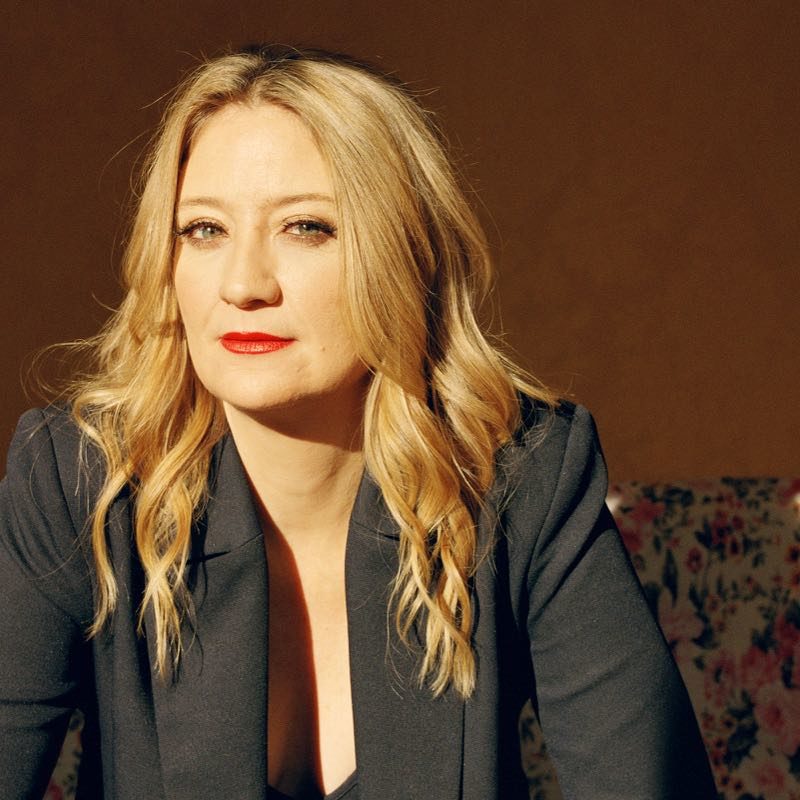The Prophet Arrived: Heidi Schreck
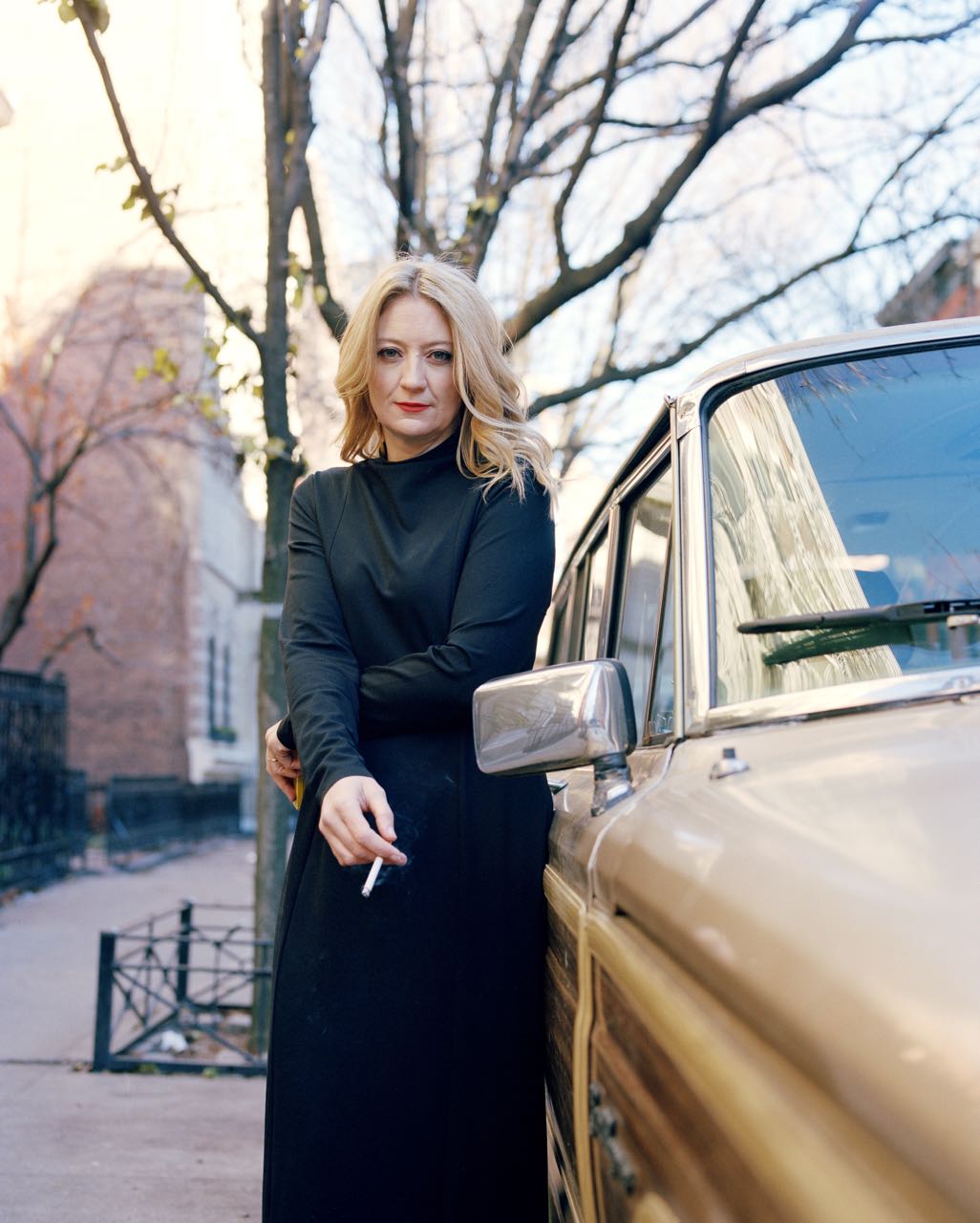
The Person of the Year Interview
December 10th, 2018
This was a bad summer. I don’t remember many of the specifics about it; whatever I did in those months quickly faded into nothing more than past time. I know I hastily planned a trip to Europe and bought a suitcase in what once would have been described as robin’s egg blue, and then just as hastily unplanned the trip to Europe, but kept the suitcase. I know I downloaded a meditation app after my doctor told me that watching television did not count as stress management, and I used it for roughly a week. I know I made a brief effort to clean and organize my apartment. I know I read All The King’s Men for the first time. I know things were bad politically, continuously. I know that on one particularly bad day, I did not cry hysterically in the back of a taxi as it crept down Ninth Avenue in mid-morning traffic; I want to say I was crying hysterically because it felt like I was and I think of it that way, but I was not. And I know I spent a lot of time thinking about an apology I had to write for doing, arguably, the worst thing I had ever done to a friend.
It was at the end of this period that, strewn across my bed in my daytime pajamas, I watched a video of Heidi Schreck’s What the Constitution Means to Me from the Clubbed Thumb production that had occurred the previous summer. In the middle of September, shortly after the show began performances at New York Theatre Workshop, I saw the piece live—and then saw it again, and again. I loved it in that way you love something when it reminds you that once, when you were young, you believed that there were people out there waiting to find you. Others who saw the show seemed to feel the same way. It was loved by people I liked and respected, and it was loved by people I did not like or respect, which both irked and interested me. It became a hit, extending twice, and then transferring to Greenwich House Theatre in the West Village, where it’s currently playing.
What the Constitution Means to Me is about a high school debate contest; violence against women; the ninth amendment; abortion; the fourteenth amendment; family; inherited trauma; moral authority; the American experiment; the construction of self; and three sock monkeys—George, George the Second, and George the Second’s Friend. If it sounds like a lot, it’s because it is. It has been labeled as a work that speaks to the current political and cultural moment, and it does, but to call it only that is to flatten out the way the piece explodes so strongly in all directions, pulling and pushing at the past and future, and permeating the imagination.
While thinking about the show, I found myself thinking about that apology I had to write over the summer. For most of the summer, I thought about the apology a lot, but wrote down very little. All of the thinking about it kept the situation suspended in a hazy liminal space where nothing was over, where I could rearrange the facts as I knew them in various permutations, and I never had to choose a version of what happened or a version of the truth. This, for me, became the most salient subject of What the Constitution Means to Me. What does it mean to be a person who feels like they have been handed a set of puzzle pieces that can fit together in different ways, who feels the weight of the desire for there to be one right way to assemble them, and yet to also be a person who keeps rearranging them? That summer, I had a constant sense that I was always operating under someone else’s rules, which had never been fully explained to me; a nagging sensation that everyone was lying in one way or another; and a terrible unease around the organization of my thoughts, time, and actions. In other words, a consuming sense of: what do you know, what do you only think you know, and what is the meaning of the fault lines between the two? In the past, I have found these concerns mirrored in the preludes to accounts of nervous breakdowns. But this time, with different specifics and context, it was the journey that I saw Heidi Schreck go on over the 90 minutes of What the Constitution Means to Me. She wrestles with the big questions of the law and who it was made for and its tenability, but also with the nature of narrative—of making choices about how to put the puzzle pieces together and coming to terms with those pieces you are asked to abandon along the way.
I suspect for other people it is about other things, in the way only works of great intelligence and deep feeling can be when they collide in a masterfully executed form. In Schreck’s case the form is an astounding blend of the literary and theatrical that can maybe most easily be described as a mix of Leo Tolstoy and Joan Didion with the theatricality of a Rodgers and Hammerstein musical (once again, if it sounds like a lot, it’s because it is). I once read that the definition of genius was the ability to create order and meaning out of seemingly disparate things; to look, with head held high, into the twilight and describe a horizon that is just out of view. That is what Heidi Shreck has done with What the Constitution Means to Me.
In early fall, I spoke with Heidi Schreck for the first time about What the Constitution Means to Me. However, there were more questions to ask and—given the extraordinary nature of the work—that should be asked, and I made the decision that for the first time The Interval would publish a second interview with the same person about the same piece of work.
The following conversation took place over two days—one in early November and one in early December—and has been edited and condensed.
[Note: Since the publication of this piece, What the Constitution Means to Me will begin performances on Broadway in March.]
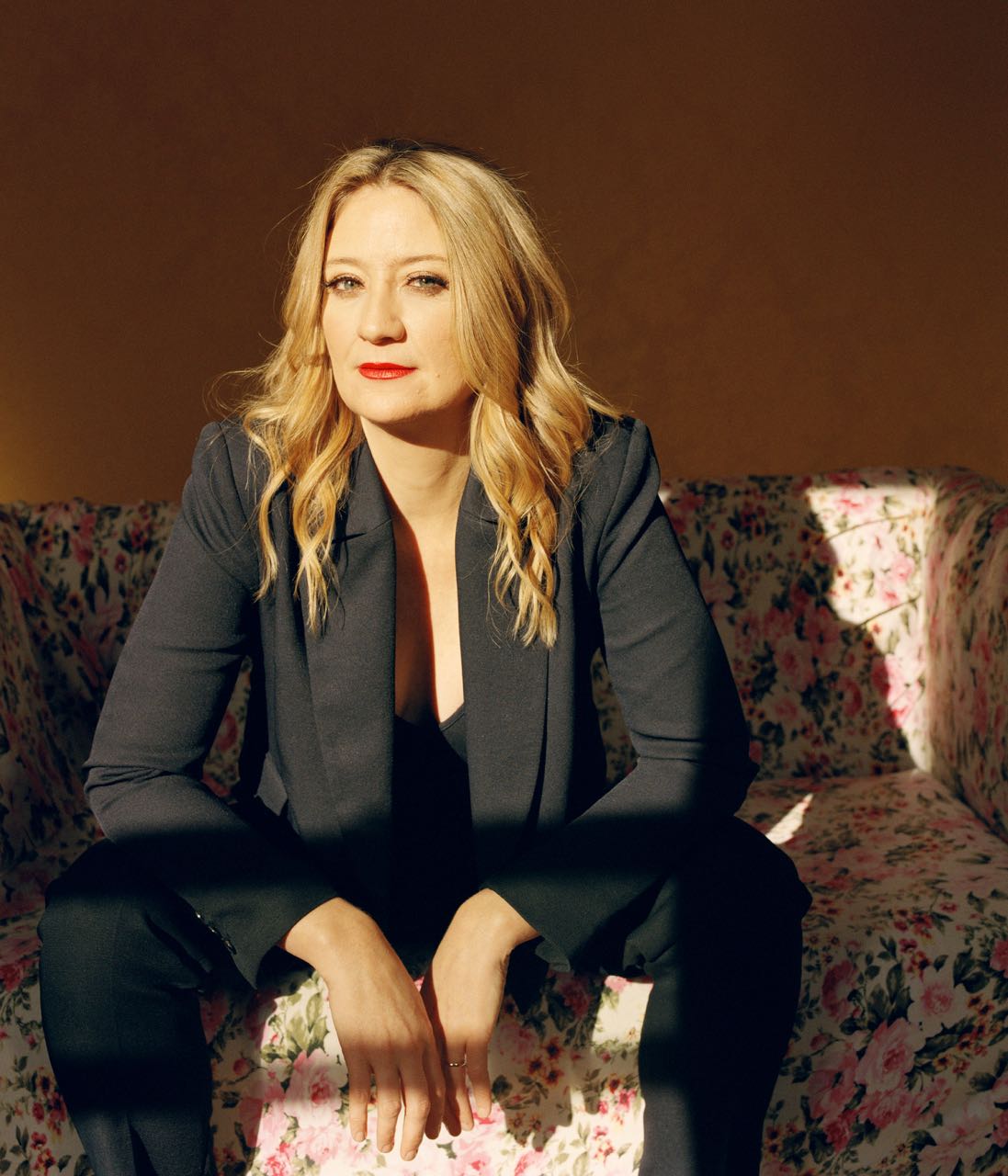
There were a number of reasons why I wanted to do another interview, but discussing form was a part of it. It seemed to me, like in much of what I was reading after we talked originally, form wasn’t coming up that much, which stuck me as odd since the form is incredibly rigorous and precise. So we’re going to go way back. When you were thinking about the show all those years ago, was there ever a version of it where in your mind you were like, “I’m going to do this in a different form, as a more traditional play?”
Yes. I knew the material was powerful for me. At first, I thought about writing a play about my grandmother, like a domestic drama about my grandmother and her life, maybe going with a form of jumping around in time and all that, so not necessarily a purely naturalistic drama. I thought it would have several characters and I would explore the generations of women in my family through actual characters. That never worked for me. I couldn’t do it. I struggled with writing those scenes and what they meant. I think with the subjective way I view my mother and my grandmother and the stories about my great-grandmother and ancestors, I wanted a form in which I was present as the preceiver and also where I was present in relationship to it. It felt false to me every time I tried to put them in scenes together talking or tried to recreate a more traditional dramatic structure. Then I thought it should be a book. I was reading a lot of memoir and a lot of—I do like this term, I don’t know how she [Maggie Nelson] feels about it—autotheory. I like autotheories a lot. Maggie Nelson [in The Argonauts] was weaving together a memoir with literary theory and then jumping back and forth between a very rigorous political form and very personal material, and I liked that. So I thought I would maybe write a book like that. But again, when I started working on that, something felt wrong to me. And then I thought, “Well, I’ve spent my whole life in the theatre, why wouldn’t I make this a piece of theatre? And since I’ve also spent my whole life on stage, why don’t I put myself in it?”
One of the things that I think made people have such a strong reaction to the piece was that you were playing you. I think it was also one of the things that people had trouble talking about. Maybe I’m crazy, but while I thought everything was true, I never necessarily assumed, one way or another, that everything in the show was totally factual, and wasn’t a fictionalization or in some way a very, very active choice. What were you hoping to accomplish and what questions do you hope the construct of someone playing themselves poses for the audience?
First, in the tradition of María Irene Fornés, my great hero, I don’t usually begin with a clear goal of what I’m trying to do. I begin to write very intuitively and instinctually. In the beginning, while I was making it, I was going so much on instinct because I knew I wanted to make something new. I wanted to make something in a way I hadn’t made anything before. I didn’t want to know where I was going. The piece is so much about fumbling around in the dark trying to find answers, trying to find myself, that I didn’t want to ever know where I was headed. I committed pretty early on to letting the piece lead me instead of feeling like I was working in a familiar format. I knew I wanted to work in an unfamiliar way and to let the form show itself to me rather than creating a structure and then filling it in.
So I was very much following my intuition about what felt quote-unquote “true” to me. And true doesn’t, as you say, mean factual in the theatre—out of the mouths of politicians, it does. When I finally realized what I might be up to, which took a very long time—I would say almost ten years—I started to understand that the play was about the formation of an identity and also the shifting parameters of an identity, my own. And also the shifting identity of a country and the shifting identity of a family story. So at that point, it made sense to me that I needed a version of myself to be at the center of it, because it was about my own movement from one version of myself to another version of myself. It was very much a play about my struggle to understand myself in relationship to history and in relationship to my family, in relationship to the women in my family, and in relationship to my country. I think at that point, I realized that this version of me needed to go through this on stage every night.
It’s so interesting to me that there has been the assumption from people that things must be true and factual. It’s such a parallel with some of what you discuss with the Constitution in the show. We assume certain things are fixed. And they don’t necessarily have to be.
Right. I’m going to take a side note for a second. One thing that is difficult about the piece is there are facts in the piece. There are statistics, there are certain court cases, there are historical details. That part of the play is factual in my head. I have fact checkers working for me and I have assistants and I constantly am checking and rechecking things. So that part of it is quite rigorous. There are things that are just dates and statistics, but when you get into stories from history, it’s confusing. [For example] in all the research I did about William O. Douglas, there are seven or eight different versions of his relationships with women. [Like] He had four wives, he was rumored to be a domestic abuser himself, he constantly left his older wife for a younger woman. There are many, many versions of these stories. There are many, many versions of how the Dred Scott decision played out. There are many different interpretations of what Clause One of Amendment Fourteen means. So that part was when things started to get murky and I was just sifting through trying to find the most corroborated version I could, and also the one that I heard as the truest. I would say my family stories are akin to that. These are stories that are passed down to me. I did research to confirm and corroborate them, but I assume there is a variation and if I were to interview every single person that was involved in these stories, they would all have a slightly different version of the family story. Then, of course, there’s my own interpretation of the events that I took part in, which also changes from year to year. The facts don’t change. But my understanding of them does or my emotional relationship to them does. But that is another deep impulse in the show: how do we know what is true? And how difficult it is and how much care and rigor it requires to understand the true story of something.
When we did The Interval night at the show and post-show talk with you and Lisa Kron, you very briefly touched on the idea of subjectivity and the idea of going from object to subject, which I feel like relates to what you were saying. There’s your experience from the inside of something and from the outside, with what you’ve been told. Like you were just asking, how much can you ever know the truth about a certain mythology that’s been handed down?
Lisa and I talked about this idea that if you grow up thinking about how people see you or how you’re viewed by your friends or by your loved ones or in your culture, and you’re constantly imagining those outside eyes on you, then the action of an artist, particularly an artist who has any marginal identity, is to suddenly turn the gaze back outward and look at all the structures and the systems surrounding you and you start to see those and you start to identify those. So, in a way, that has been an important awakening for me.
I grew up thinking, “Oh I’m like this. I have intense depression. My mom had intense depression. So did my grandma. A lot of this comes from this one bad man in their lives, this evil man, perhaps, who inflicted horrible violence on them.” For me, the progression of this show is I’ve been able to widen the frame to see much more clearly how he was part of a much larger system, which you can call patriarchy and white supremacy and maybe western civilization. When I started to be able to see his actions as part of that, and also the things my grandma and my mom dealt with as part of this larger system, it was a profound revelation. It allowed me to suddenly think that I could be the subject, that I could look out and name the things I was seeing, as opposed to being the victim of something, as opposed to being subject to other people’s decisions and control. Just by the act of being able to see it and name it, I suddenly felt tremendous agency.
In that same talk with Lisa, you briefly brought up something else that was so great that I couldn’t believe it hadn’t been discussed before. It was the idea of duality in the show. Throughout the show, you have this idea of the two mothers and the two grandmothers. I think that relates to what we have been talking about in regards to how well you can ever know the truth about anything. And, this other idea: that you can have two things that are both true and are in conflict with each other.
I think that there are always two things that are true and in conflict with each other. That’s a big part of it. There are two mothers in the show, there are two grandmothers, and there are two Heidis. There is the fifteen-year-old me with an incredible sense of optimism, the Heidi who inherited a lot of privilege and also a faith in American exceptionalism. Then there’s a disillusioned 40-something Heidi who knows a much truer history of the country than I knew when I was 15, but who also continues to carry some of the optimism of fifteen-year-old Heidi. I also think that fifteen-year-old Heidi sensed that there was something amiss, even if she couldn’t name it. That’s part of the reason I haven’t made a huge distinction between playing myself as a fifteen-year-old and playing myself as a 47-year-old. There are some things I employ, but I feel like the fifteen-year-old exists in the 47-year-old and vice versa, and that’s more interesting to me than, “This is who I was when I was fifteen. This is who I am now.” I still contain the fifteen-year-old who is eager to please everyone, hopeful, too polite, wanting to make the best of every situation. And I think that fifteen-year-old contained the me that knew that something was amiss here, who was angry, and saw more clearly than she allowed herself to admit. I’m interested in bringing those things together.
In terms of the two moms and two grandmothers, I also think there is something about subject and objects. There was a mother, who, as I say in the show, was terrorized as child, who saw herself as a victim, who didn’t believe she had any power, who didn’t think she could be the subject of her own life. And then there was the mother who took action at age fourteen and realized that she had subjectivity, that she had agency, that there were actions she could take to move her life forward. I think in all people, both of those things exist. But I think particularly for people who are not cis white males in this culture, that split is very intense. Do I have agency or don’t I? Am I a subject or an object? If I’m relegated to the margins by the culture, how do I claim myself as the center of the narrative?
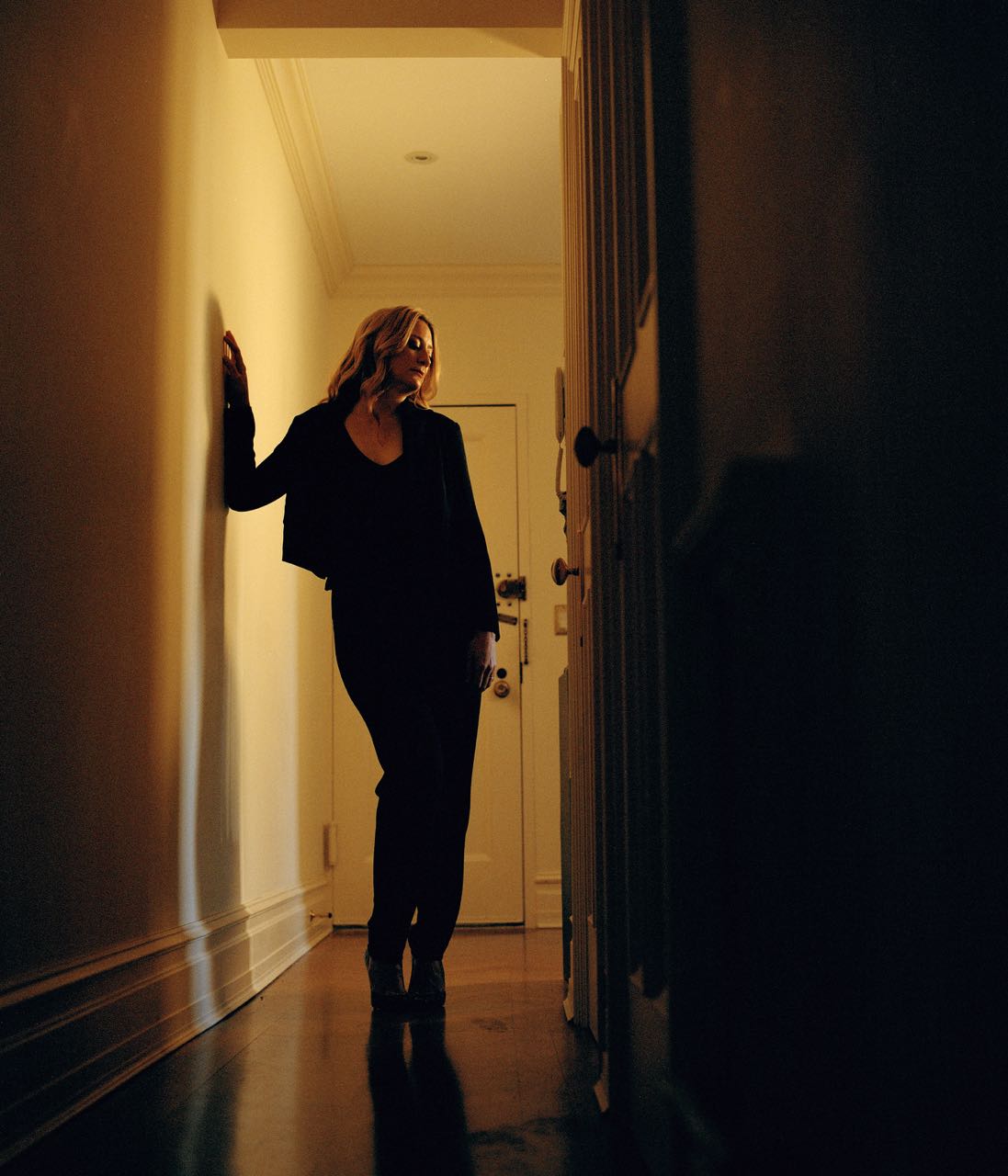
I think it’s so smart for a few reason. One is that idea of moral plurality or value plurality is so associated with the philosophy of positive and negative liberty because both theories come from Isaiah Berlin.
And the fox and the hedgehog. I love the fox and the hedgehog.
Given the subject of your show, you have these two theories that are really instrumental in our in relationship with government and how we talk about government.
Learning about positive and negative rights was one of the most exciting discoveries for me in this play. I didn’t know a lot about it before I started working on the play. The first person to teach me about it was Bill Araiza. He’s a Constitutional scholar at Brooklyn Law School. He’s fantastic. That idea just opened up a whole world of possibility for me. I started to realize that this idea of negative rights, this idea of a neutral document was problematic. I think we’re at a moment in history when it’s pretty clear that there’s no such thing as neutral, right? I think you can grow up in this culture as a white person, especially, and think you somehow embody some kind of neutral space. And that’s just patently false. So this idea of a document that’s neutral, I don’t understand what it means. And the more I started thinking about it in terms of what’s going on in the country right now, and myself as a person and the actions I’m trying to take to be more politically active, I thought, “Oh, so to take some kind of neutral stance is to actually allow, if not promote, violence and oppression.” Part of that I started to understand by taking this workshop called Undoing Racism. It’s one of the greatest workshops I’ve ever taken, and I want to take it to my hometown. I’m working with a woman in my hometown, who’s actually conservative, but is pro-choice and anti-family separation. I want to talk to her about bringing this workshop to my town to see if we can bring it to some of the white women who are voting for these conservative men.
So that idea started to sink in deeply, the idea that if I’m not doing something to actively undo sexism and racism, then I’m perpetuating it. And then I thought, “How can this document that was created by white male property owners, many of whom owned slaves, how can we say that the neutral view of this document isn’t one that promotes white supremacy?” I also get very angry at the idea of the document as some kind of sacred text. I think it’s a text that’s corrupt and flawed like any other text. When I started to learn about positive rights, I thought, this seems like a way to move beyond this idea of neutrality—to say neutrality isn’t a value that helps us. What we need to do is positively protect human rights. We need to positively protect all people. We need to actively rectify the inequality. It’s not going to go away by itself. And it’s certainly not going to go away with some sort of neutral approach to our values.
I think having someone who has to wrestle with two conflicting things that are both true, and their ability or inability to deal with that is such a powerful journey for a character, because there are people who really find moral relativism untenable. One of the things I find so moving about your show is that the protagonist really has to wrestle with the dual nature of so many things and people in her life. I feel like it’s something that I’ve encountered much more in literature than on stage, which I am guessing has to do with the form of written prose being an easier fit for that sort of exploration.
I think that emerged organically. Many times in rehearsal, I would go down a certain path talking about an idea or exploring some story or piece of history I had uncovered and I would start to talk about it and say, “That is true, but also this is true.” This is partially inspired by the nature of debate and high school forensics where you can’t assume that anything is true. There’s always going to be someone who’s going to argue the other side, so you’re constantly examining your thought process, constantly testing your arguments for holes. And that was the process of making this. I was constantly saying, “Yes, this is true,” and then immediately, my mind would leap to, “But also this is true.” I was reading and researching and I genuinely came to a place where I couldn’t reconcile things. I felt like that then became the action of the play: to go on stage and relay information and try to reconcile it in real time, not come to an answer because I haven’t come to an answer, and then allow the audience to take part in that reckoning with me.
That’s all to say—and this has been true about almost everything in the play—my guiding principal has been to always go back to what feels true. So anytime I want to take a shortcut and say, well, a cleaner narrative line for this play would be to say, “I believed in negative rights, then I understood that positive rights were the way to go and we should do that,” or, “I thought America was wonderful as a kid, and now I think it’s horrible.” Not true, and also boring. Every time I tried to narrow it down to this is the one-sentence story of this play, it felt false to me. I decided I couldn’t do that. I think that’s what’s allowed the form to remain this kind of dialectic on stage—really actually a crucible on stage—and for it to be a living thing that’s happening on stage every night, including the debate.
I also sometimes think of the action of the play almost like Talmudic scholars, that you look at the thing. The action is to look at the thing and break it down, look at those four clauses over the course of an hour and a half and just break them down and break them down and break them down and try to understand them—and try to understand them in a room full of people, and try to understand them in the deepest, most personal way. And my understanding of it does change over time. I am taking this text that, frankly, our country regards as holy, whether they should or not, and I try to look at this very small piece of it and understand it. So in that way, it does sometimes feel like a ritual. It’s like a religious service. It’s like, we’re going to look at this piece of text, we’re going to see where it takes us. We know we have to get through these four clauses. We know it has to relate to the personal. We know that we have to understand the legal ramifications. And we know that we have to look at it in terms of the broader political history. That’s what we’re going to do. We’re going to see what happens. We don’t know how it’s going to turn out.
You also managed to show a lot of that and not just tell it. I think the whole George II’s Friend part is a great example of that.
Really, to me, that’s what makes it theatre and not a lecture and not a nonfiction essay. It was important to me that I work on the personal, but also on the subconscious level that I do in the play. When I talk about the due process clause, I need to talk about my abortion. Okay that’s clear, that’s a conscious thing. But when I talk about my abortion, I want to talk about my sock monkey. I don’t really know why. I’m sure I could make some guesses with my therapist. But it felt important for me to include all of that material. Everything that’s both conscious and less rational. Because I felt like if the goal is to really embody the effect of this document on me, on my family, on bodies of human beings, then I have to allow all the stuff that I don’t understand into the story, and I have to allow the stuff that feels too personal and the material that feels like I don’t exactly know how it relates, except that I trust my intuition that it does. I have to let in everything that’s not the dry stuff into the material. And that’s why I think that it’s theatre and it’s not a lecture.
And Tolstoy put in like 100 pages about farming and that does not make Anna Karenina not a novel.
Yes, exactly. But another reason the play is theatre is because I’m not just lecturing about legal precedence, I’m actually going through something as a human being on stage. I’m going through an emotional catharsis, I’m going through an emotional journey. My heart, mind, senses, emotions are all involved in the performing of the play. And I think that would be true for any actor that performed the play. It doesn’t happen without that, without the traditional tools of theatre, which is an actor putting themselves on the line, opening up, and being vulnerable to an experience that they can’t control.
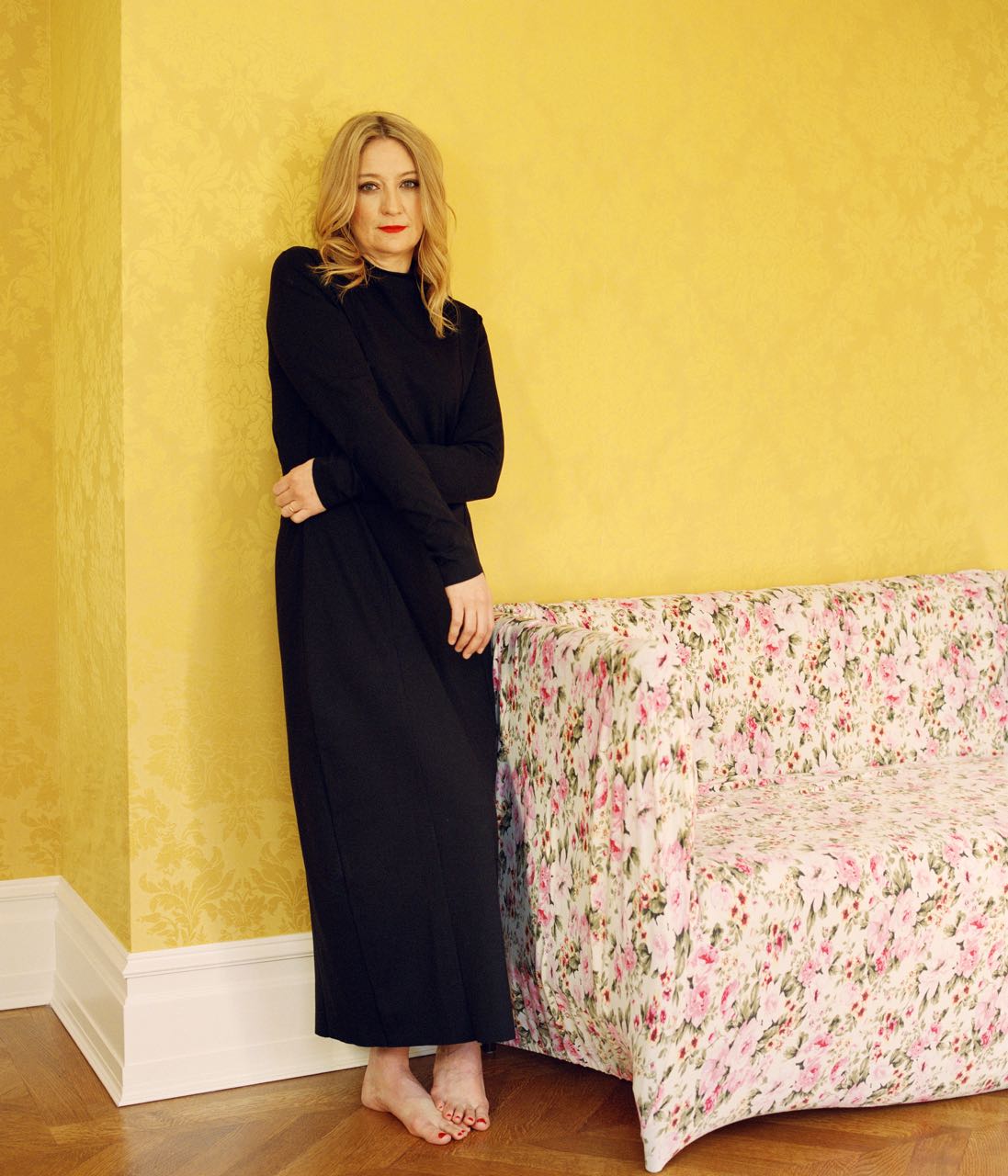
Something else that I was curious about was the decision about voice in the show. The other week I was reading an essay by Lauren Elkin, who writes in all prose but different genres, and she was saying when she wrote for one type of thing, she had a different voice than for something else, because in her mind there was a certain way each genre was supposed to sound. Voice is such a big choice—it’s almost like the Joan Didion idea that style is character. How did you decide what voice to use in the piece?
Again, it was instinctual in the beginning. I had the eight minute speech about the crucible [of the Constitution]. I had written it a decade ago. I didn’t really know why. It has a very particular voice. It’s filled with an adolescent girl’s bizarre fantasies about being a changeling, about her imaginary friends, her obsession with the Ninth Amendment. That sort of came out of me, and I looked at it and thought, “Okay I don’t know what this is, but the voice in it is very clear. So obviously that’s one of my voices. I don’t know exactly what it is. But I’ll keep writing and see what happens.” So I guess that’s the first voice that I began, this voice of the teenager. And when I realized I wanted to bring my voice into it now, that had much more to do with how I wanted to relate to the audience. The fifteen-year-old voice was very much from my subconscious, from the things I was unconsciously trying to control. I think that’s probably where the sock monkey story came from and I think that’s where some of the other weirder stories came from. But then I knew when I wanted to talk about my history and my family’s history, I had a much more conscious goal there, which was that I wanted to talk about how these things related to our laws. I wanted to talk about how they related to our political system. I wanted to talk about them in a way that invited the audience to look at the connections between laws and people’s personal lives. So that part was very much like, how can I make this welcoming? How can I make this entertaining? How can I make these stories vivid so that the audience gets to think about something they might not think about otherwise?
Something I’ve been thinking about a lot is the idea of moral authority and who gets to have it and what it sounds like when they do. On the rare occasions when I write what I am loath to call opinion pieces for The Interval, I don’t necessarily know if I’m writing in my voice. It’s a voice I’m capable of, but when I hear the words in my head I don’t know if it’s mine. Occasionally, I suddenly have this deep voice with a British accent.
A British accent is so helpful if you want to sound smart.
I have a very internalized belief that my natural speaking voice and the natural way that I am in the world are things nobody sees as being intelligent. Like most exterior things about me, they 100% do not signify an intelligent person, regardless of what the truth may be. But I know how to write in a style that is considered serious. I wondered if you had any of those thoughts while putting this piece together, especially during the parts where you talk about Constitutional law? I’m hesitant to say this because of how it might be interpreted, but I feel like there is a femininity to the delivery of your piece. Have you ever found yourself having to fight the desire to dial some of that back in order for the audience to receive certain things?
That’s really interesting. It makes me think of the fact that when I was a high school debater, one of my favorite things to do was let people underestimate me. I always knew when I showed up in my little skirt with my long hair that the boys I was usually competing against would think that I was dumb when they looked at me. And that was my super power—that I knew I was going to come out and decimate them, and they wouldn’t expect it. So I remember that as a claiming of my more feminine side as a high school girl, like, “I’m going to show up looking as feminine as possible and then I’m just going to kill them with my arguments.” I might be playing with something similar in the show. I do play with the idea of sneaking truth in in a way that might be unexpected. I do think that the buoyant girly version of myself that starts the play is a little bit reminiscent of how it would show up in a debate, like I’m going to disarm all of you because you think that I’m not going to do anything scary or hard hitting here, so we can all be here together. And then it allows me to bring out deeper truths, scarier ideas in a way that you’re not expecting. I think I actually played with that a lot in the show.
I have found that there are times in the show when I will deliberately do things like drop my vocal register and drop my smile and drop my overzealous hand gestures in order to make sure that I’m being listened to. But I do think, in some ways, part of the fun of the show is the sneak attack of it. I also realized, there was some point a few weeks ago where I started to just enjoy my physical body on stage. I realized how much fun I had performing. I was a dancer for 13 years and I started to realize I could have a lot more fun with my body. I started to think, “Why don’t I get to put all of who I am in this?” Part of me is this super feminine woman. Why doesn’t she get to be part of the show too? And then these other parts of me—the very rigorous intellect, the incredible thought I put into the show, my ability as a performer—why don’t I just use everything that I have? I like doing that because I also feel like it connects to the action of the piece, which is that we’re all many, many things. More than two things. We’re all many, many things and I like the idea of allowing all of those into the piece.
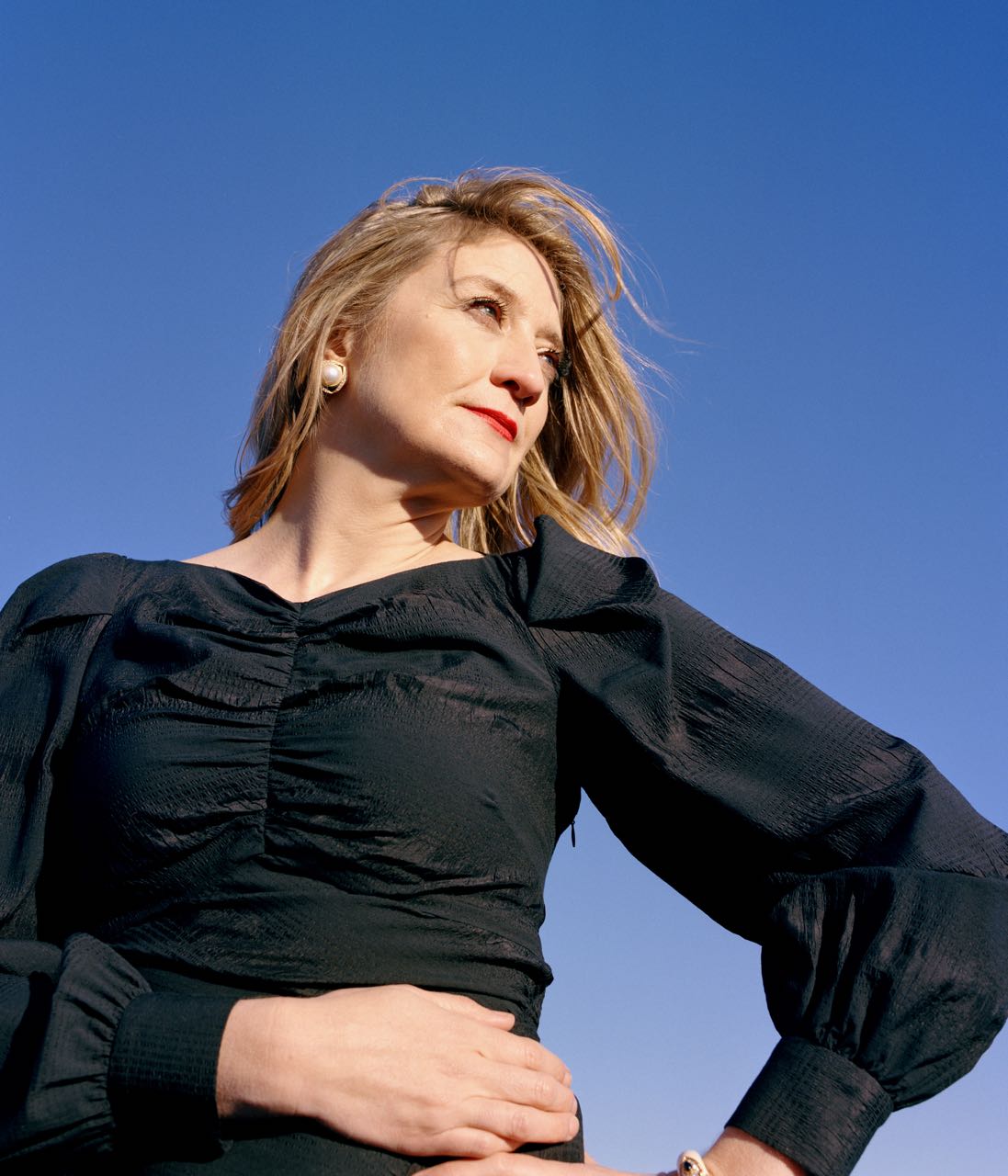
When we talked the first time, it was before you’d actually started performing. The entire time you’ve been doing the show has been an intense time politically, which on one hand, can make for some very, very intense audience responses, but, at the same time, I wonder if it’s been a double-edged sword? Have you ever felt like it made the conversation more about the politics than the actual work?
It hasn’t. The play’s action is this grappling and it’s trying to reconcile these things that can’t be reconciled, and I’m fascinated by how the play changes from night to night without me changing anything. I actually find it quite thrilling to see which parts of the play emerge more vividly on any given night depending on what’s going on in our country. I wish those things were not going on in our country. But in terms of performing it, I don’t have a preconceived idea of what I want people to take from it, or how I want it to be received.
I suppose if I had to say what I wanted, it would be to wake people up to the questions and the conversations in the way I woke up to it by making it. To put us all in the room together with these questions hanging in the air. If those questions are different on any given night, that still feels good and important to me. I don’t mind if suddenly the play feels like it’s about this thing that’s happening right now, and then the next night it’s about something else. It all feels like things in the air that we need to be thinking about.
I also will say this: There were many days when I thought, “I cannot do this show tonight.” The Kavanaugh Hearing day, the day he was confirmed, I was so depressed. Then I would come to the theatre and I was so relieved to be in a room full of people thinking about all of this and talking about it and expressing our feelings about it together instead of alone in my home scrolling despairingly through Twitter. And even though I get so exhausted doing the show, this week [of not performing] has actually been really hard. I’m like, I wish I could go and do the show now. I wish I could go and do the show after voting on Tuesday. I wish I could go be in a room full of people after processing all of the horrible things that are happening. It’s just made me realize how vital it is for us as human beings and how vital to our democracy it is that we gather together, that we show up together and talk about these things and feel things together, and commune.
When you’re working on a show, there’s all the creative stuff. But then when you’re actually doing it, you have to start doing press, and it’s a whole other experience. A lot of people have talked about how women get asked very different questions than men do during interviews, and that autobiography is always assumed in their work. Did this show ever feel especially challenging to do press with? Was there ever a point where you thought maybe you wouldn’t talk about what was true and what wasn’t? Although that would probably be difficult in this case.
Yeah, in this case I think it would be tricky. Like many playwrights, I hate talking about my work. I hate trying to explain it or define it or say what I think it’s doing or trying to do. It always feels reductive to me. In this case, I felt strongly that I wanted to be very transparent about the piece. I wanted to be open about the fact that things were true. I wanted that because of the moment we’re in as a country. As I said in the earlier interview, I think it’s so important that women talk openly about these things right now. I think talking about abortion, talking about violence, talking about sexual assault, talking about these things openly is the only way for us to move things forward. So I was very happy to say in every interview, “Yes, this is all true.” And it’s part of the theatrical engine of this show that I decided to write about things that were all true.
It was a big, aesthetic choice for me to not fictionalize things that I’ve been fictionalizing for two decades. All of these concerns have been in all of my plays. I hide them in all my characters, I disguise everyone, I disguise myself. And I felt in this moment, the most radical thing I could do was say, “I’m not going to fictionalize any of this right now.” It felt like I needed to be as plain and open and as transparent as possible. But to me it also feels like an aesthetic choice. And I do think there’s a version of the play that eventually could be performed by another actor. And I believe the form of the play holds up.
I know people who have seen the show have thought that it should be filmed for HBO or Netflix or BroadwayHD. I understand where that comes from, since it gives people not in NYC the chance to see it, but since you also work in those mediums, I wonder if you think there are perhaps other interesting ways where you’d want to tell this story in that medium where it’s not just putting a camera in the theatre?
I’ve been trying to think about it because they are having discussions about this right now. There’s been interest in filming it and the big question for me now is, what does that look like? How do we adapt the play for television? And it seems to me that one of the things that people find powerful in the piece is its liveness, and obviously that will disappear on television. So I’m thinking about other ways to approach it.
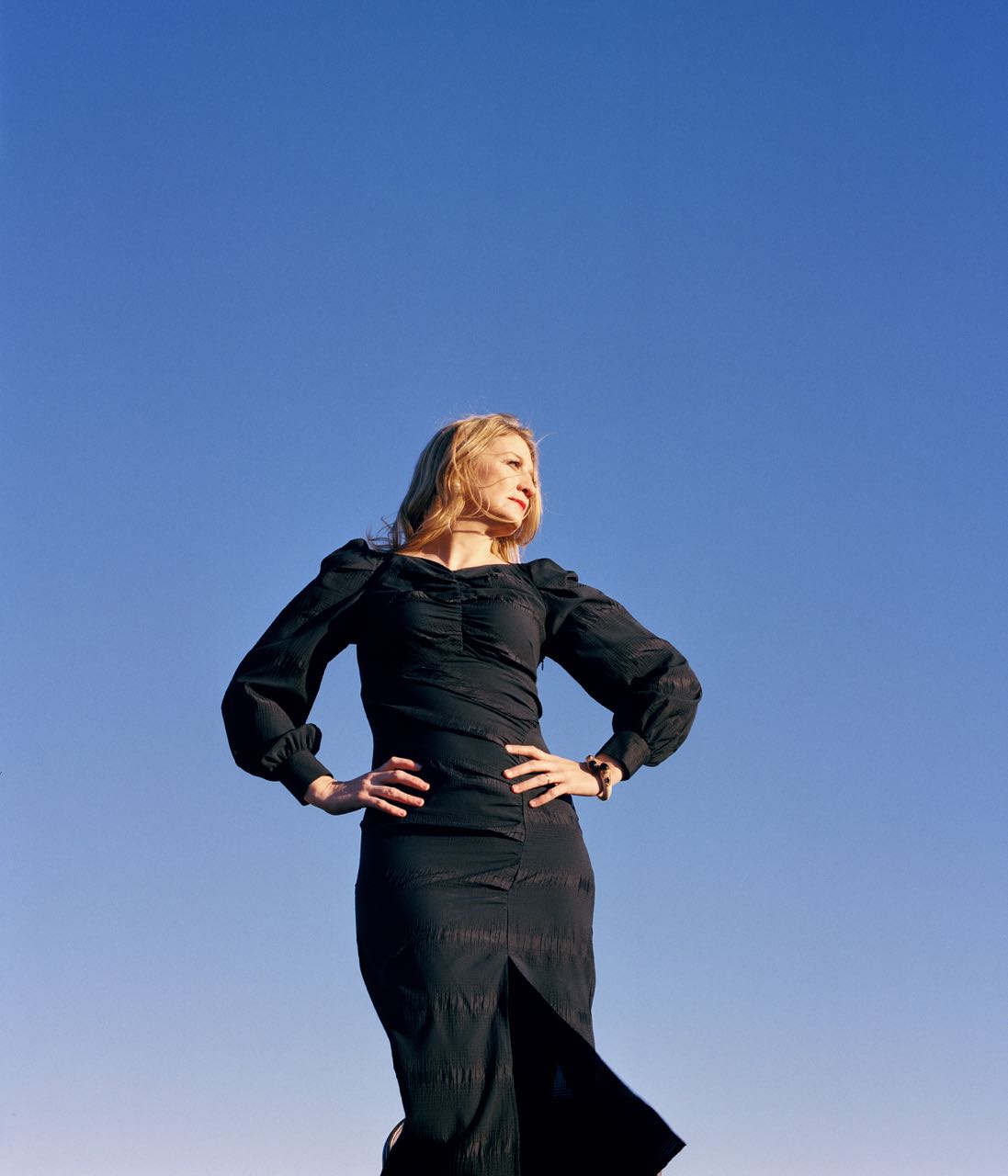
I used to ask people this question occasionally, but then stopped. However, I want to ask you. Do you consider yourself to be brave?
I don’t know if I feel comfortable calling myself brave. I don’t know if I’ve ever been tested in a way that would require bravery in any kind of large sense. I do think I’m brave not with a capital B, but with a small letter B, in the sense that I often will do things that I’m scared of doing. I’m often frightened to do something and make the decision to do it anyway. So in that sense, yes. But brave with a capital B, I don’t know.
Do you think the show is brave?
I was raised with a kind of intense politeness and obligatory modesty, so it’s hard for me to talk about these things. I definitely think the show required more bravery than anything I’ve made before. It was scarier than anything I’ve made before, and I had to push forward through some difficult territory. I don’t think my bravery compares to the bravery of what my mom did [as a child], but I do think it required a kind of bravery on my part to tell the hardest stories in our family.
What was your biggest fear in putting it out in the world?
I had two big fears. My first fear is that people simply wouldn’t care. I think a lot of women have that fear. That you’ll talk about what is painful and difficult and no one will hear you. So I had that fear that people just wouldn’t be able to hear it or wouldn’t care about what the women in my family had been through. And the other was—and, honestly, I don’t know if it’s rational—but I had a lot of fear that someone would lash out at me. I had fears around the idea that someone would show up and want to hurt me or do harm in some way, especially in talking about my abortion.
I don’t think that’s irrational, especially for someone who knows the history of abortion in this country. It’s interesting that we’re doing this the day after Hillary Clinton tweeted about the show and tagged you, since now you’re seeing all of the horrible things people say to her, death threats included, coming up in your mentions too.
I’ve watched a lot of incredibly brave women writers like Roxane Gay, Jessica Valenti, and Lindy West, and I love all those women, and I follow them and I see what they deal with. I like my privacy and I am in some ways a shy person who likes to avoid conflict, and I did have fear about putting myself out there in this way. I worried about what I might have to deal with.
Earlier, I was re-reading the interview I did with you in 2014. I had asked you if you thought there were any themes in your acting work, and you said something that seems so relevant to your show now. I’m going to paraphrase, but you said you felt like there had been a trajectory of going from playing parts of “the beloved girl” to women who were comfortable claiming authority. Your show is, in some ways, a coming of age story. So I’m going to ask you a question I asked in 2014: when did you first feel like an adult?
I remember you asking me that. Did I say that I wasn’t sure I felt like one yet?
You said something like that you thought you only started to feel like one a few years ago.
I think that was true. I think I was quite old when I started to feel like one. Doing this show has made me feel like an adult in a new way. In part because I enact that trajectory every night on stage—I feel like I enact a trajectory of growing up and claiming myself every night on stage. And just doing that has made me feel more grown up and more ready to wield authority in the world. Also I have had such interesting opportunities come to me because of this show. I’m talking next week with the new ERA coalition and I’ve been talking to women about joining a domestic violence nonprofit. I’ve discovered new opportunities for actually taking action in the world to try to make things better and that makes me feel much more grown up.
I don’t know if I thought about this back when I asked you that question the first time, but it’s such an interesting and weird thing to think about what being an adult even means.
I think I have a new understanding of what it means to be an adult. I joined a political action group in 2016 and I think, like many people in this country over the last few years, I’ve taken a lot more active efforts to try to make change in this country and in my community. Doing this show has afforded me more opportunity to do that. And, for me, that’s a whole new way of being an adult, which is like, “Oh, I can actually affect change as a citizen.”
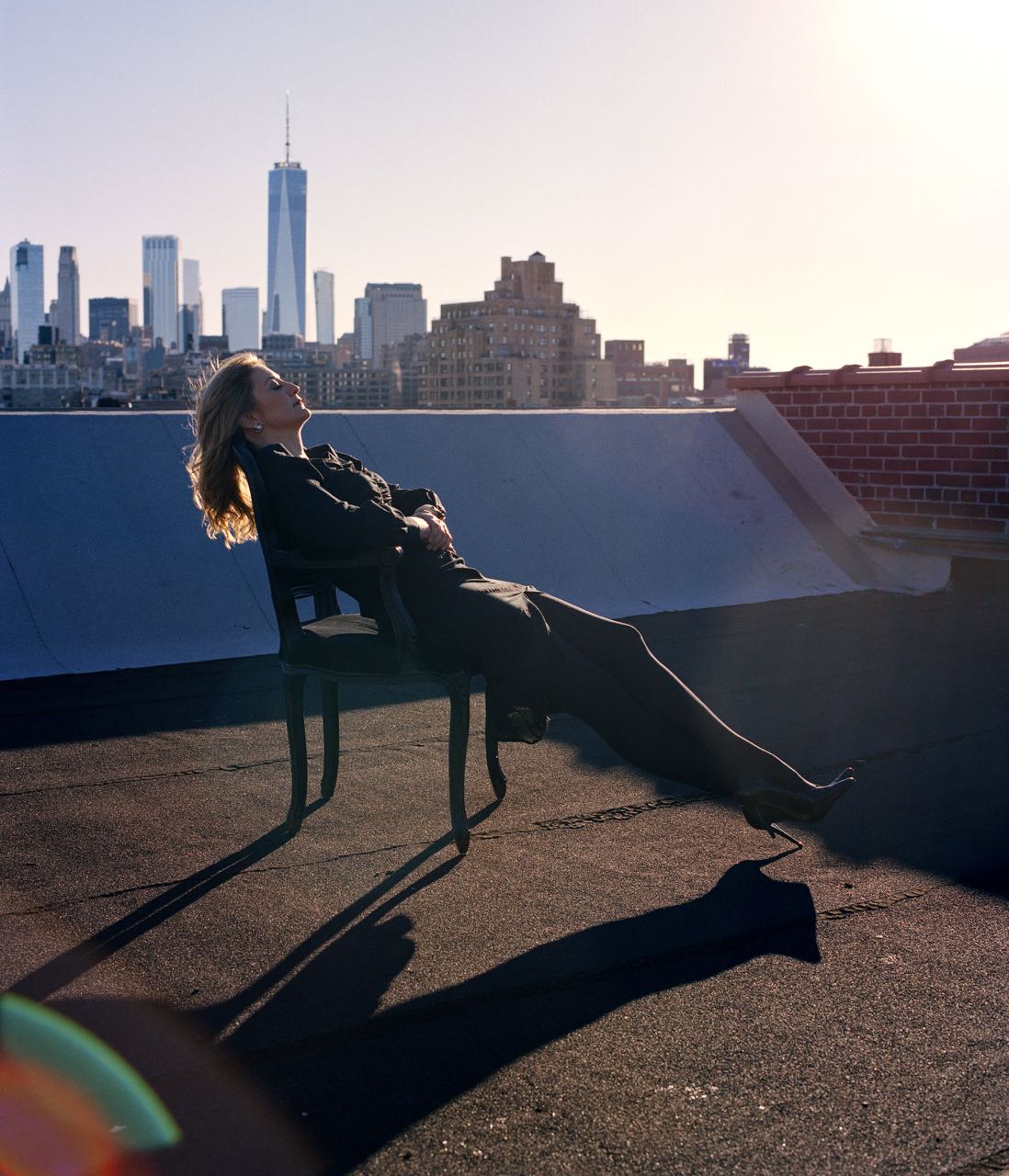
I’m going to make our last question the same as the last question in your show. What do you imagine your life will be like in five years?
This is what I hope my life will be like in five years. I would like to write a book. I have been talking to publishers about possibly writing a book inspired by the show. I would love to do that. It’s been my dream since I was a kid to write a book. And there’s so much material that I had to cut out of the show because it’s a piece of theatre and I couldn’t delve into all of the things I wanted to. So I would like to finish that book in five years. I would like to have a family. My husband [Kip Fagan] and I are talking about starting a family. And I would love to have a tiny house in the woods where I could go and write. I love the city so much, but I just need a tiny little place where I could escape to and have a room full of books and be by myself. Like an anchoress house. I want my own tiny little anchoress room where I can just sit and think and read and write.

